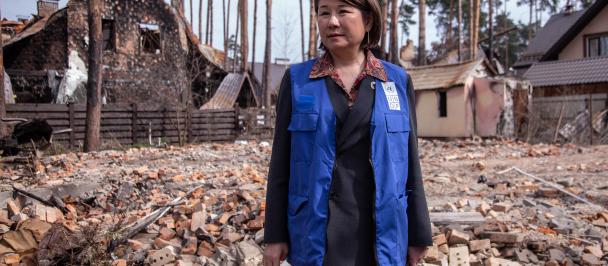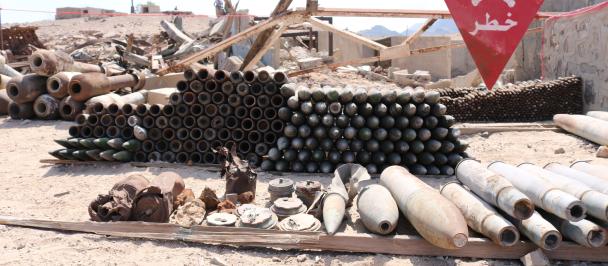Excellencies, Ladies and Gentlemen, Dear Colleagues,
It is my great honour to welcome you to this event on “Overcoming War Legacies, Endeavour for Peace and Sustainable Development”. It is organized jointly by the Government of Vietnam and UNDP. I am pleased to co-chair this event with Deputy Minister of Defense, Senior Lieutenant General Nguyen Chi Vinh, who is a key partner for UNDP in Viet Nam.
Today, we gathered to learn from Vietnam’s endeavours for peace and sustainable development by overcoming war legacies. 40 years after the war, 18 % of the land is still contaminated with mines and ERWs. Let me start by recalling that in the current global humanitarian and development climate, the role of Mine Action as an enabler for sustainable development is increasingly important. It helps bridge the humanitarian action - development divide, and serves a vehicle for delivering the 2030 Agenda. A lot of potential can be unlocked through linking Mine Action to Sustainable Development and achievement of the SDGs.
UNDP has supported Mine Action initiatives globally since 1993, when we launched our first programme in Cambodia. Since then, UNDP has supported mine action programmes in over 40 countries.
UNDP’s commitment is reinforced in Development and Mine Action Support Framework which focuses on three main areas:
o Translating mine action into sustainable development dividends.
o Strengthening national institutions that accelerate development benefits for the countries and people affected by landmines, and
o Supporting international normative frameworks on mine action (namely, the Anti-Personnel Mine Ban Convention, the Convention of Cluster Munitions, the Convention on the Rights of Persons with Disabilities).
In 2017, UNDP and the Geneva International Centre for Humanitarian Demining conducted a study on “Leaving No One Behind: Mine Action and the Sustainable Development Goals”. This important study shows the direct links between mine action and a range of SDGs. For example, releasing land after clearance not only has direct impacts on reducing violence and fear (Goal 16), it is also an indirect accelerator for several other SDGs, including SDG 1 (Poverty), SDG 2 (Hunger), SDG 3 (Healthy lives), and SDG 8 (Inclusive growth). Our work on Development and Mine Action is also in line with UNDP’s Strategic Plan and the new UN Strategy on Mine Action (2019-2023) which is closely linked to SDG implementation and the goal of “Leaving no one behind”.
Over the last year UNDP has provided extensive support to the Government of Vietnam in overcoming war legacies, especially in the areas of mine action and to a lesser extent - peacekeeping. You will hear more about our programme from my colleague, UNDP Resident Representative in Vietnam. Our work spans from building national capacities, mine risk education, to victim support through innovation. We are delighted to learn about the first results of our programme in Vietnam. We intend on putting stronger focus on planning of future activities around developmental outcomes from Mine Action. In particular, we would like to prioritize the initiatives aimed at socio-economic development after demining, and plans for usage of released lands. We are hoping that these best practices could be shared and replicated through South-South cooperation.
We also welcome the ambition of the Government of Vietnam for a stronger role in global peace through peacekeeping efforts and their commitment on Women, Peace and Security agenda.
Today’s event is an opportunity to take stock from past cooperation and look into the future. We look forward to strengthening our partnership with the Government of Vietnam in these areas.
Thank you for your attention.

 Locations
Locations

